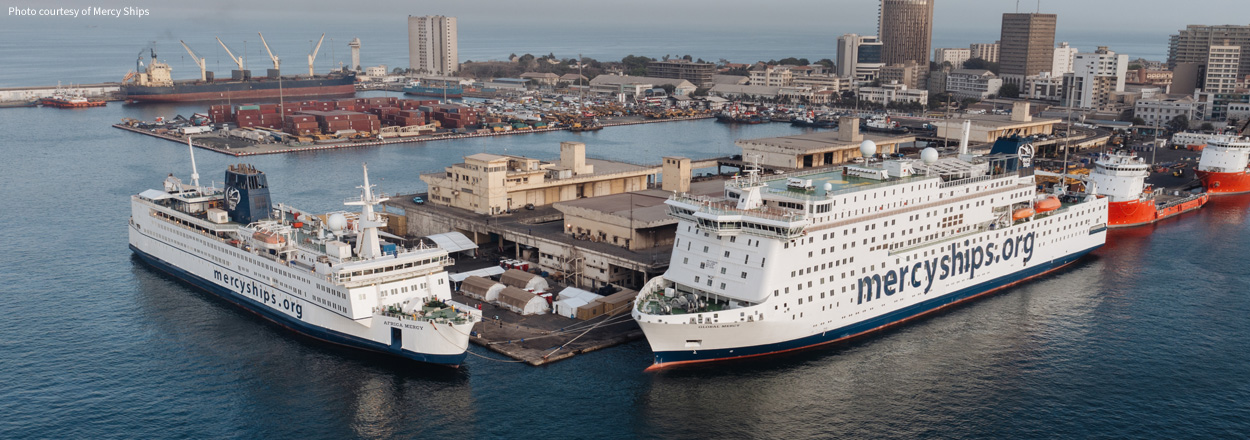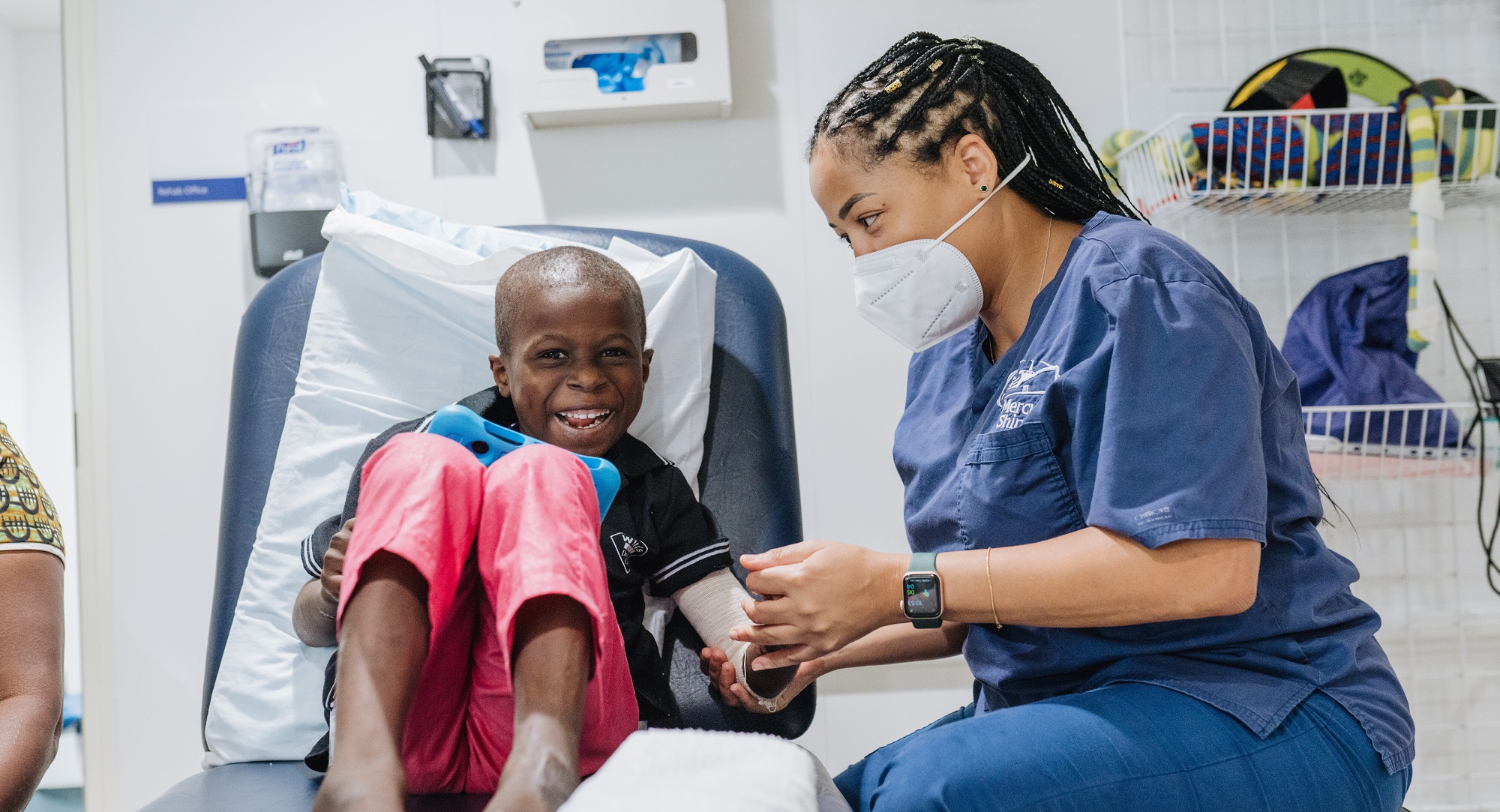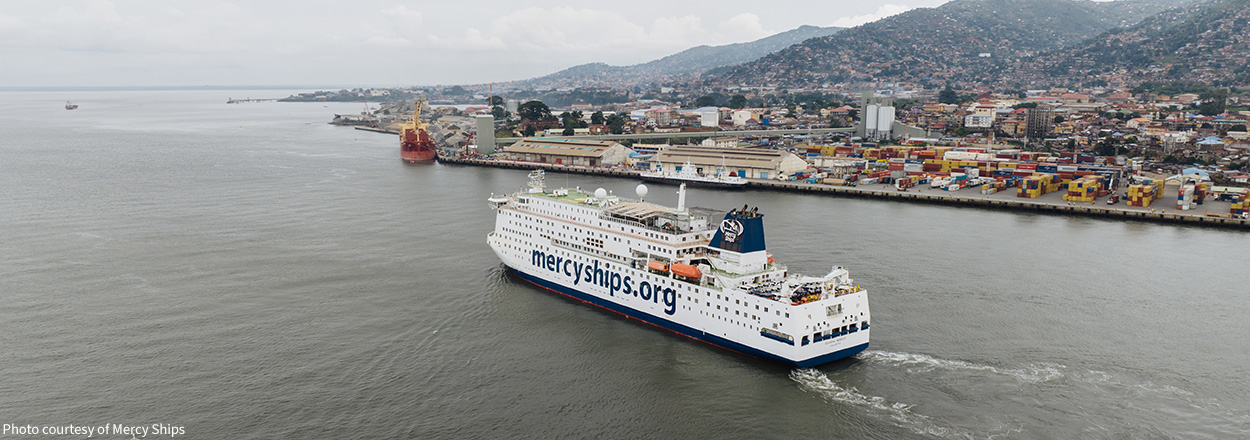Did you know that almost five billion people lack access to safe surgery? Did you also know that nearly 50% of the world’s population lives near a coast? While these two facts may seem unrelated, they’re two important cornerstones of Mercy Ships’ mission: to bring life-changing surgery to the people who need it most.
Founded in 1978 by Don Stephens, Mercy Ships is a non-profit organization that works to bring accessible healthcare to impoverished communities through state-of-the-art hospital ships. Akin to floating cities, the group’s impressive vessels act as places to live and work for more than 1,500 volunteers from 60 nations who selflessly dedicate their time to providing free surgical, medical and dental care to children and adults who would otherwise go without.
“Since 1978, Mercy Ships has had one to three ships in service,” said Cecilia Villa, head of resource development for Mercy Ships. “From 1983 through 2007 our ships served various countries/areas throughout the world including the South Pacific, Central America, various ports in the Caribbean, Brazil, the Dominican Republic, Guyana and Haiti. Since 2007, our hospital ships have served West and Central Africa.”
Today, Mercy Ships operates two ships — the Africa Mercy and the Global Mercy, which is the first purpose-built hospital ship and the largest civilian hospital ship in the world.
“The surgeries onboard in a country vary greatly from destination to destination,” said Villa. To help meet the demands of specific communities, critical surgical needs are determined around two years in advance to give the team time to prepare. Villa cited cleft lip and palate, cataracts, bowed legs, burns and scars, dental issues and obstetric fistula repair for injuries sustained during childbirth as common medical problems treated by personnel aboard the African Mercy.

“Many of these ailments are extremely severe because patients have had little prior access to medical care,” said Villa. “In addition, people with disfiguring medical conditions have often been shunned by their communities, so medical treatment from Mercy Ships can also help relieve the stigma and isolation that they have experienced.”
In addition to providing life-saving surgeries while docked, Mercy Ships invests in local surgical infrastructure to ensure residents can continue to receive care long after a ship leaves the port. To achieve this, development teams associated with the non-profit work alongside local leaders, governments and national ministries of health to determine surgical infrastructure needs and create projects that will support the surgical ecosystem in a partner hospital. Additionally, Mercy Ships offers medical professional monitoring and training courses both on the ship and in-country to help improve the quality of services across each hospital.
While medical professionals like surgeons, dentists and nurses are always a hot commodity, there are so many ways for people to get involved with Mercy Ships, including travel advisors.
“We have like-minded affiliate organizations who assist our travelers globally with the process of getting to and from field service,” said Villa. “These partners fill our specific niche in being able to move hundreds of travelers from international origins to where we serve patients — often in commercially underserved regions.”
As for those hoping to roll up their sleeves and help, Villa noted there are several volunteer opportunities where knowledge of travel is beneficial, such as administration or reception. When asked if there was anything she wanted advisors to know, Villa pointed out that the logistics of these types of trips are far different from the average vacation, but the trouble is well worth it in the end.
“When people sign up to serve with Mercy Ships, getting them from place to place is a different process than the leisure travel sphere. We’re sending our travelers to be of service in locations many people would not choose to go on vacation, so there are often more logistics that go into booking that travel,” said Villa. “Despite it sometimes requiring more research and consultation on the agency’s end — and flight time on the traveler’s end — it’s an incredibly worthwhile endeavor to be able to help people get to where they can do the most good.”
Originally appeared in the Summer 2023 issue of The Compass magazine.






comments